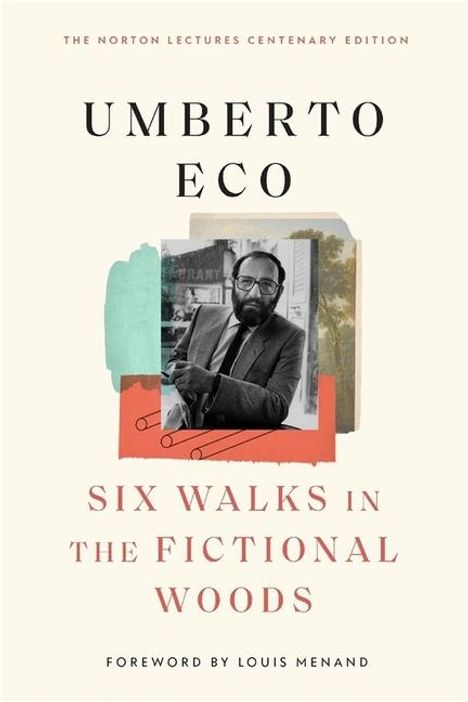Umberto Eco (1932-2016): Six Walks in the Fictional Woods, Gebunden
Six Walks in the Fictional Woods
(soweit verfügbar beim Lieferanten)
- Verlag:
- Harvard University Press, 09/2025
- Einband:
- Gebunden
- Sprache:
- Englisch
- ISBN-13:
- 9780674302464
- Artikelnummer:
- 12270739
- Umfang:
- 192 Seiten
- Gewicht:
- 358 g
- Maße:
- 210 x 140 mm
- Stärke:
- 13 mm
- Erscheinungstermin:
- 26.9.2025
- Hinweis
-
Achtung: Artikel ist nicht in deutscher Sprache!
Klappentext
"Erudite, wide-ranging, and slyly humorous." -The Atlantic
One of the great novelists and public intellectuals of our time gives a master class on the philosophy of fiction.
Umberto Eco was fond of pointing out that all writing is narrative. He published his famed debut novel The Name of the Rose when he was forty-eight years old, yet he believed that everything he had written to that point-from treatises on semiotics to essays on mass culture-took the form of a story. To Eco, scholarship, much like fiction, was shaped by narrative. It was the stuff of life itself.
Six Walks in the Fictional Woods, a collection of essays based on Eco's 1992-1993 Norton Lectures at Harvard, illuminates fiction's porous boundaries-in particular, the myriad ways that literary works conscript readers' experiences and expectations. Fiction, says Eco, can offer metaphysical comfort by appealing to our desire for a smaller, more legible world, one that gives a definitive answer to the question of "whodunnit?" But it also makes demands of us, presupposing a model reader who possesses the cultural knowledge necessary to interpret the text, as well as a willingness to follow the never-quite-specified rules of the literary game.
Whether he is dissecting grammatical ambiguities in Gérard de Nerval's nineteenth-century romantic masterpiece Sylvie, studying the rhythms of Ian Fleming's James Bond novels, or tracing the web of fraud and misattribution that produced the antisemitic conspiracy theory of The Protocols of the Elders of Zion, this is Eco at his very best: intellectually omnivorous, endlessly fascinated by hoaxes, and always an adept navigator of the narrative forests that surround us.
Biografie
Umberto Eco, geboren 1932 in Alessandria, lebt heute in Mailand. Er studierte Pädagogik und Philosophie und promovierte 1954 an der Universität Turin. Anschließend arbeitete er beim Italienischen Fernsehen und war als freier Dozent für Ästhetik und visuelle Kommunikation in Turin, Mailand und Florenz tätig. Seit 1971 unterrichtet er Semiotik in Bologna. Eco erhielt neben zahlreichen Auszeichnungen den "Premio Strega" (1981) und wurde 1988 zum Ehrendoktor der Pariser Sorbonne ernannt.§Er verfasste zahlreiche Schriften zur Theorie und Praxis der Zeichen, der Literatur, der Kunst und nicht zuletzt der Ästhetik des Mittelalters. Seine Romane "Der Name der Rose" und "Das Foucaultsche Pendel" sind Welterfolge geworden.§2011 wurde Umberto Eco mit dem "Premio Pavese" ausgezeichnet und 2014 erhielt er den "Gutenberg-Preis" der Landeshauptstadt Mainz und der Internationalen Gutenberg-Gesellschaft. Umberto Eco starb am späten Abend des 19. Februar 2016 im Alter von 84 Jahren in seiner Mailänder Wohnung an den Folgen einer Krebserkrankung.

